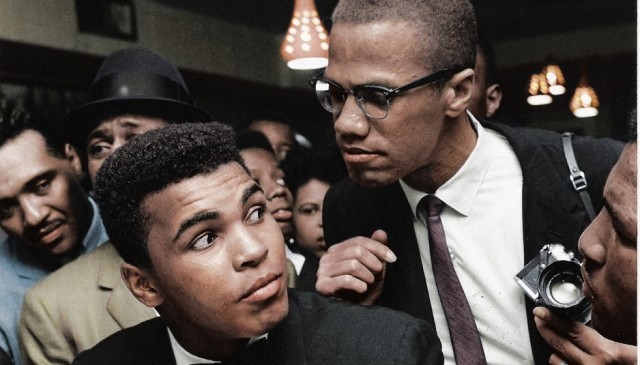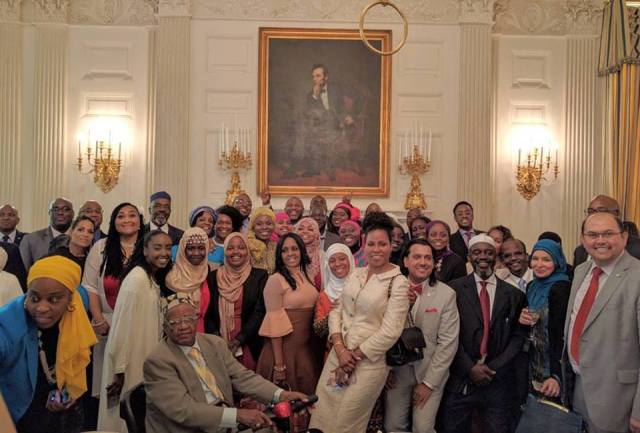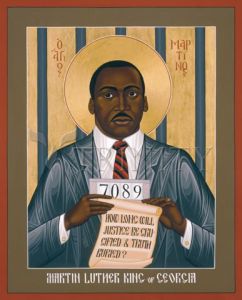
Image source: Franciscan Icons by Robert Lentz
As a Muslim, we are taught to avoid icons or idols. I’ve taught various courses in Islamic history and am deeply aware that this human tendency to create idols happened over and over again in Muslim societies. That is because of the human tendency to imbue objects with supernatural powers to intercede in human affairs on our behalf, rather than call upon an abstract, and seemingly unknowable, Ultimate Reality. Similarly, we ascribe super human powers to movement leaders, rather than address the complex social systems. Thus we create icons of leaders like Malcolm X, Martin Luther King, and now Oprah Winfrey.
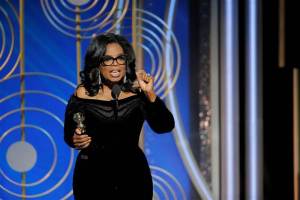
Image source: Reuters
When we take leaders outside of their social context, and just focus on their rousing speeches, we do ourselves a disservice. The calls for Oprah Winfrey to run for president after given a powerful #TimesUp speech at the Golden Globes is the latest example of icon worship over personal work. Rousing speeches may inspire us, especially when we need to boost our morale for the hard work ahead. But the rousing speeches and public actions do not replace the transformative work of relationship building, of service to community, or sacrifice for the collective good. A powerful speech does not uproot longstanding norms, policies, and social practices that cause gendered vulnerabilities. No one woman, no matter how many Billions can change this society. Focusing on the icons prevents us from seeing how social change happens.
This week, we are celebrating Martin Luther King Day. The popular images of the Civil Rights Movement tend to focus on the March on Washington. We imagine the marches as a sign of mass mobilization. Our minds don’t shift to the organizing, the fundraising which was done by working class and poor Black folks who maintained the movement work. We don’t think about debates into the long hours, the marathon strategizing sessions, the rigorous training sessions to prepare Black youth to stare down white supremacist violence. Few of us think about Ella Baker or Fannie Lou Hamer who maintained that movement. No, we give the Civil Rights an icon and imagine that if we had one dope leader our world would be changed.
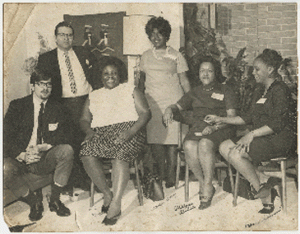
Fannie Lou Hamer, seated at left, at a meeting of the Mississippi Freedom Labor Union, a union of black domestic workers and day laborers. Photograph courtesy The Tougaloo College Civil Rights Collection at the Mississippi Department of Archives and History
It may be a stretch to call this a form of shirk, but a case can be made that it short circuits the faith-full work of getting to know one another, of working with people from different social and economic backgrounds to get stuff done. That’s the kind of work that the Sahabi (Companions of the Prophet Muhammad) and taba’een (Righteous Predecessors) did in Medinah. The focus on the icons keeps us from the responsibility of living our morality, our duty of caring and loving each human being and promoting dignity for each other. Focusing on the icon allows us to focus on adoring the image powerful leaders and less on the collective love we need to sustain our work. Anas ibn Malik reported: The Prophet, peace and blessings be upon him, said, “None of you will have faith until he loves for his brother what he loves for himself.” (Ṣaḥīḥ al-Bukhārī 13, Ṣaḥīḥ Muslim 45) The focus on the icon keeps us from actualizing that love in tangible acts that help our brothers and sisters live the dignified lives that we hope for ourselves. Of wanting for their children what we want for our children. Of realizing that their children are our children. And that we are in this together.
Note: this article is not to disparage Easter Orthodox Traditions, which utilize icons in profoundly meaningful ways.

